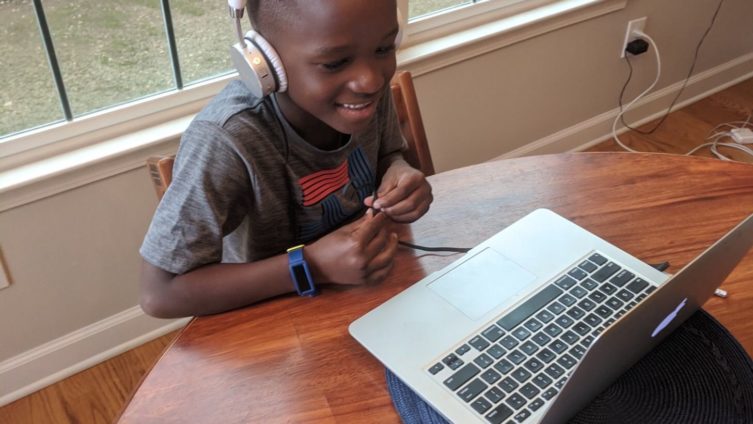
While some kids may be responding to the changes surrounding COVID-19 and our campus closure seamlessly, others may be having a more difficult time adjusting.
The constant news and ever-changing, novel nature of COVID-19, paired with school closures, activity cancellations, and disruptions to our daily lives can be enough to cause unusual fear, stress and worry for adults and children.
Stress and worry are a natural part of children’s lives as they experience and learn to cope with uncomfortable emotions. Children who are stressed or worried may show their feelings in a variety of ways, including meltdowns or crying more than usual, irritability, “clingy” behavior, or nightmares.
If kids show signs of worry or anxiety, parents can use a variety of strategies to help children cope. Here are suggestions for parents to ease kids’ potential anxieties and worries at home:
Reassure Them: Use language that reassures children that adults are doing everything they can to keep them healthy and safe and that they are loved. Keep this language simple. Knowing they are okay, that they are cared for, and that they are safe goes a long way for kids’ wellbeing.
Maintain a Schedule: Try to keep to your regular routine as much as possible. Wake up and go to bed around the same time each day, and during the day, make an attempt to match the school schedule they’re used to as closely as possible. Be sure kids have breaks and movement added in throughout the day just as they would at school.
Use Distraction: Have children list out favorite activities they can do for fun. If tempers flare or tension rises, stop everything and pull out one of those activities. Stop for a spontaneous dance party, or head outside for a movement break. Watch a funny television show or movie, pull out a joke book or have your home assistant tell you some jokes. As parents, establish long periods of time when there is no news playing. A distraction from the constant barrage of COVID-19 news is healthy for adults as well.
Add in Extra Love and Attention: Seek opportunities to create connection with your kids. Ask open-ended questions during dinner and at bedtime, use games like “roses and thorns” to have kids express the favorite parts of their days (the roses) and their least favorite parts of their days (the thorns). Cuddle up for a read aloud, audiobook, or recorded story. Have movie night complete with favorite movie snacks. Family time in large doses provides children with the sense of safety and connection they need for their wellbeing.
Be Extra Patient: It is important for parents to be patient with their kids as well as with themselves. Emotions can run high during difficult times and meltdowns may happen (for both adults and kids). Model genuine apologies and empathic forgiveness as much as you can. Name your feelings as a family. Naming emotions helps with taming emotions, which brings us to the next tip: Name it to Tame it.
Name It to Tame It: If you notice your child experiencing a strong negative emotion, notice it out loud: “Wow! That made you so angry!” This not only builds children’s emotional vocabulary, but it helps them pinpoint emotions more precisely. Normalize the feeling by saying something like “I can understand why you feel that way” or “That would make me angry too.” Ask a follow up question like “What do you think would help you calm down?” or “What would help you calm down?”. Coping skills are extremely important in helping kids through difficult times.
Provide Facts in Age Appropriate Ways: There are many resources on the TCS COVID-19 page for how to talk to kids about the virus. The CDC continues to update their website with resources for families on how to talk to kids about the virus as well. Please check out these resources for suggestions on what to say to children and how to present the information in age-appropriate ways. Remember that information that may be appropriate for an older child may not be appropriate for younger children.
In some cases, strategies like the ones above may not enough to calm a child’s worries or anxieties. This may be especially the case for children who are already managing an anxiety disorder. For these children, worries and anxieties can get more intense instead of fading away. If you think your child may be experiencing a level of worry or anxiety that is interfering with their ability to function, please reach out early to either your child’s pediatrician or to me (natalieg@tcsatl.org) for recommendations for getting your child support.
TCS maintains a list of trusted counselors, psychologists, and psychiatrists who have worked with TCS students and families and whose work has been proven effective in our community. Connecting with your pediatrician or with the school counselor can help parents connect with the right professional for your child.
Parents Article:
https://www.parents.com/health/mental/anxiety-in-children-when-to-worry/
Connect with us on Facebook, Instagram, or Twitter to experience “hard fun” at TCS!









